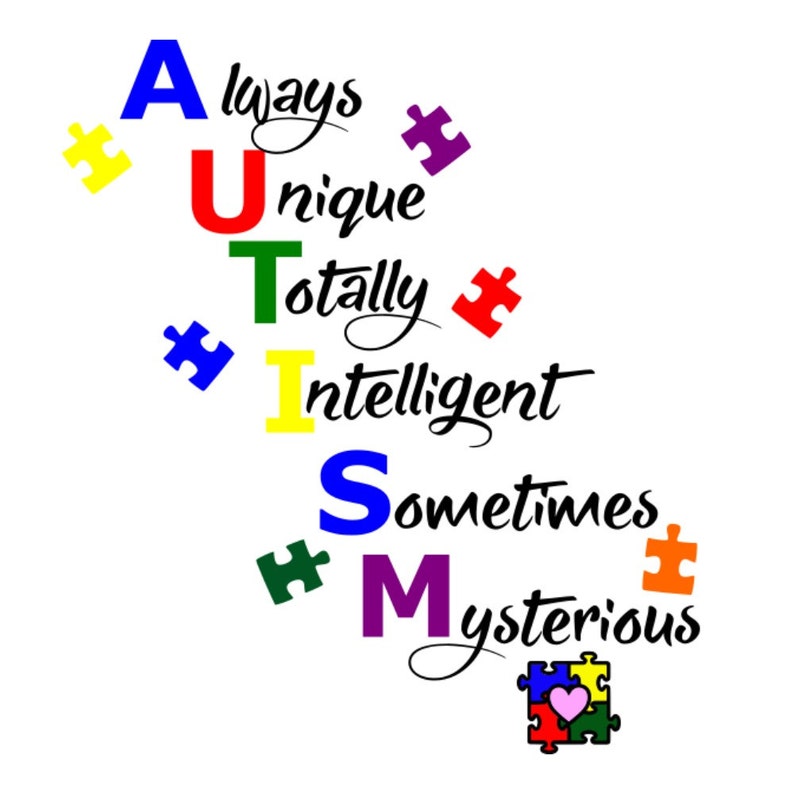Autism or Autism Spectrum Disorder (ASD) refers to a broad range of conditions characterized by challenges with social skills, repetitive behaviors, speech, and nonverbal communication.
According to the Centers for Disease Control (CDC), Autism affects an estimated 1 in 59 children in the United States today.
Helping to stop discrimination against Autism is important because having awareness helps with inclusion, self-determination, and the assurance that each person with Autism reaches their highest potential. If there is a lack of awareness, then that could cause bullying and discrimination.
Teachers, families, social workers, and therapists need to learn about Autism and spread awareness to others who don't have as much awareness to help people with Autism and their families not feel alone.
There has been so much work done to help raise awareness about Autism. Some examples of that work include anti-bullying policies in schools, autism awareness workshops and seminars, and fundraisers like walks and events to help spread awareness. The remaining gap is that people need to be more open-minded and have an awareness that people with autism can be just like them in some ways. Also, the differences like the behaviors of people with Autism can be embraced by others by spreading awareness and positivity about Autism.
My Life with Autism
Ever since I was diagnosed with Autism in Elementary School, I have had many hardships throughout my life from bullying to feeling alone. In this part, I will tell you some of my experiences with Autism to help you not feel alone if you have Autism.
I have had many challenges with having Autism. I have had a hard time making friends who are my age because I'm normally a shy person. I have also had a hard time with getting bullied in school by students and staff, especially in Middle School. I eventually went through depression and paranoia because of that and I started self-harming because of that. After a hard few months with battling that I committed myself to inpatient treatment with the support of my Mom. After many inpatient hospitalizations, I committed myself to RTF treatment(Residential Treatment Facility). After a long year of that treatment, I was able to step down to a CRR Host Home (Community Residential Rehabilitation) which is where I'm at now thanks to my support system.

"I think I can! I know I can!"
The quote above means so much to me because it shows if anyone can think or dream of accomplishing something they can do it and know it.
Overcoming the Challenges
Besides having challenges, I have also accomplished dealing with those challenges and overcoming them. I have a really great support system such as my family, my teachers, and staff at my current school, and my treatment team at Community Services Group (CSG) in Lancaster which is a part of my CRR Host Home Treatment. Currently, in my life, I have the skills to tell people about my Autism and I have also made friends with and without Autism. My depression is also vanishing with the great support of my treatment team, family, and my current school. My biggest advice to whoever reads this is, "Don't take your Autism diagnosis or disability as who you are and you are not alone in your journey through overcoming your obstacles in life.

"Autism is a gift, not a burden."
If you see someone with Autism, talk to them. Be a mentor. get to know them and help them overcome their social sensitivities and help them find their place in the world. The links below will also help you learn more about how to help people with Autism.
Autism Speaks.Autism Society of America Childrens Hospital of Philadelphia (CHOP) KidsHealth Neumours Alfred Dupont Childrens Hospital (article for kids) KidsHealth Neumours Alfred Dupont Childrens Hospital (article for teens)